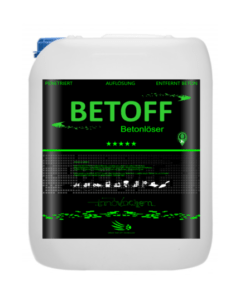Fastest Ways to Clean Concrete from Small Construction Tools are key to maintaining the functionality and longevity of equipment used on construction sites. When concrete hardens on smaller tools such as trowels, cement mixers, or buckets, it can lead to damage, decreased efficiency, and ultimately higher costs for both repair and replacement. That’s why learning effective maintenance techniques is essential for every contractor and builder working with concrete regularly.
Fastest Ways to Clean Concrete from Small Construction Tools
One of the best approaches to handling dried concrete on tools is to act quickly and use the right cleaning methods. If you leave the concrete to harden, it significantly increases the effort needed to remove it. A consistent cleaning routine using efficient products can make a massive difference in tool care and overall project workflow.
Routine cleaning as a preventive measure
After each use, cleaning tools with water and a stiff brush prevents concrete from setting and building up. This habit not only protects the equipment but also saves time on future tasks. If tools have already been exposed to drying concrete, soaking them in a specialized cleaning solution can simplify the removal process.
Many professionals turn to effective cleaning compounds that dissolve hardened concrete without damaging the metal surface. Using biodegradable and non-corrosive agents can ensure safety for both the tools and the user.
Fastest Ways to Clean Concrete from Small Construction Tools Effectively
Choosing the appropriate method depends on how much concrete has dried and the type of tool. Lightweight, precise tools like finishing trowels require delicate handling, while buckets or wheelbarrows can handle stronger cleaning solutions or mechanical scraping methods.
Chemical cleaners designed for construction tools
There are many industrial products designed specifically for breaking down concrete residues. These cleaners penetrate hardened concrete and make it easier to wash off using water after softening the material. Contractors often rely on reliable chemical formulas that save both time and labor while maintaining the tool’s quality.
Some products require dilution and a short waiting time after application before cleaning. It’s essential to choose materials that are environmentally friendly and certified for use on construction sites, especially when tools will be used around sensitive materials or areas.
Most Common Mistakes During Concrete Tool Maintenance
Professional builders know that even simple tasks like cleaning can go wrong if done incorrectly. One of the biggest mistakes is allowing concrete to dry for too long before cleaning, turning a quick wipe-down into an hours-long restoration.
Improper methods that can damage tools
Using metal scrapers or hammers to break off hardened concrete may solve the problem temporarily, but it puts tools at risk of scratches, dents, or breakages. Instead, using targeted products like acid-free cleaning agents allows concrete softening without impacting the integrity of small equipment.
Another common error is improper storage. Wet tools stored in sealed containers can cause rust or corrosion. After cleaning, it’s important to dry tools thoroughly and store them in ventilated areas to maintain their longevity.
Innovative Techniques and Tools for Fast Concrete Cleaning
Modern construction techniques have introduced new approaches that make cleaning faster, safer, and more effective. These include lightweight sprayers for applying detergents precisely, foam dispensers that hold the cleaner in place for better absorption, and power washers with controlled pressure settings.
Choosing the right cleaning agents and tools
The fastest ways to clean concrete with small construction tools often depend on matching the right cleaner to the type and degree of buildup. In some cases, low-pH formulas like organic deconcreting solutions offer the best balance between performance and equipment protection.
If you’re working across multiple job sites, portable cleaning kits can be useful. These often include gloves, brushes, sprayers, and concentrated chemicals that can be prepared on-site with water. Several companies offer convenient packages specifically designed for mobile use in tight workspaces.
To stay efficient on the construction site, builders are increasingly adopting specialized professional-grade products and applying them regularly on tools such as cement sprayers, hoses, hand mixers, and screeds.
For regional solutions, exploring localized options might provide better availability and support, especially in wider European markets. Whether you work in Northern Europe, Southern regions, or Central Europe, tailored options such as Scandinavian formulations or French-optimized cleaning agents may deliver faster and cleaner results.
Even for niche markets, such as those in the Netherlands or Eastern Europe, efficient deconcreting tools are available with manufacturers offering custom-tested solutions compatible with industry requirements. You can also choose regional suppliers like specialists in Czech markets or Baltic-approved products that cater to weather conditions and local construction traditions.
Lastly, don’t forget the value of scalable products that adapt to unpredictable environments, including Finnish winter sites or Swedish urban builds. Companies offer snow-safe ingredients or nontoxic cleaners that operate under extreme conditions without compromising tool safety.
Keeping small tools clean doesn’t have to be time-consuming. Understanding the fastest ways to clean concrete from small construction tools balances productivity with durability. By integrating smart maintenance, utilizing proper materials, and employing modern cleaning techniques, contractors can maintain their work efficiency and professionalism – all while extending the life of their equipment.

